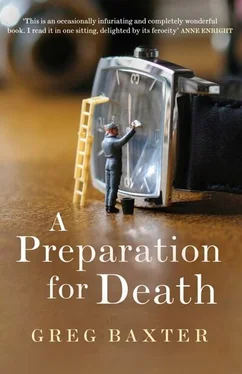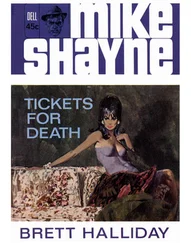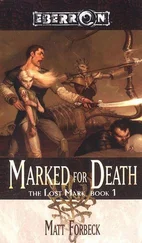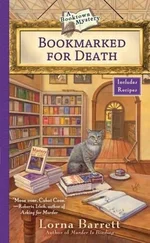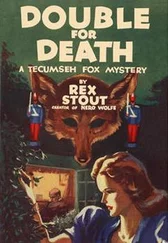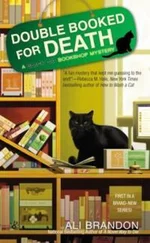Greg Baxter
A Preparation for Death
He remembers being born somewhere, having believed in native errors, having proposed principles and preached inflammatory stupidities. He blushes for it … and strives to abjure his past, his real or imaginary fatherlands, the truths generated in his very marrow. He will find peace only after having annihilated in himself the last reflex of the citizen, the last inherited enthusiasm … The man who can no longer take sides because all men are necessarily right and wrong, because everything is at once justified and irrational — that man must renounce his own name, tread his identity underfoot, and begin a new life in impassibility or despair.
E. M. Cioran, A Short History of Decay
In August 2007, I found myself alone in a house I did not want in one of the bland boomtime estates of north Dublin. My marriage had ended. This book is mostly the story of what came after. I shall try to explain a few things, here, about what came before.
I arrived in Ireland in 2003. I’d been living in Baton Rouge, Louisiana, the few years previous to that, writing a novel. When the book failed to sell, I decided to leave the US for Europe: I could not bear the humiliation of being an unpublished novelist in a country where bad writing, as it seemed to me, had become institutionalized. I resented everyone I knew — for their success, which I considered fraudulent, or for their stupidity, which I considered implacable.
In Dublin, I was unemployed for seven months. During this period I revised the novel. I walked from the house I was sharing to a shopping centre down the road, where there was a small café that was never crowded. I plugged in my laptop and worked. I remember very little specifically about this time. I only remember that on the day I finished the revisions, I felt happy. The book had doubled in size, but I had, inarguably, dealt with every criticism it had received. It now answered everyone’s concerns. When I went up to pay, I informed the owner that I’d been working on my novel, and was finished, and I wanted to thank him personally for giving me the space. In front of other patrons, he screamed at me for using up his electricity without permission, and only drinking coffee when everyone else ate. He told me never to come back. It was not too long after this that I realized the revision of that novel had been a waste of time: all I had done was glue, clumsily, a great deal of conventionality around a book I believed was original.
Eventually I got a job as a reporter on a weekly newspaper for doctors. This was a job I was not qualified for and did not want, yet I remain there today. I have tried quitting — serving verbal notice twice — and I have tried to get promotions, but my attempts at both were always half-hearted, and I always botched them.
For about a year I worked very hard at becoming a good reporter. I did not want to become a good reporter, but I felt I ought to become good at something. I wrote a second novel, which an agent didn’t like, and I gave up trying to sell it before I had to face any more rejection. I realized that being a good reporter was not — to me — its own reward, and when I was passed over for an important promotion I felt I deserved, I saw my life heading toward an unbearable and unending monotony. Shortly after that, I spotted an ad for a job teaching evening creative writing courses at the Irish Writers’ Centre. I applied, and got the job. I did not know that getting this job was to become the most significant event in my life.
I knew well from past experience that people who call themselves writers, and who teach creative writing, usually divorce creativity from learning. They prioritize writing over reading. I wanted to avoid this at all costs. I had no intention of teaching courses in which adults sat around taking blind stabs at creativity. I wanted to introduce students to the value of reading, and thinking about, great literature. I wanted them to understand that their lives were not sufficient preparation for writing, and that the desire to be a writer was not the same as writing. I had gone about becoming a writer in the worst way — with greed and overconfidence — and I suppose I wanted to teach patience and learning as a form of penance. But I achieved more than that: I discovered a little honesty within myself. I put a lot of effort into a rediscovery of literature that allowed me to admire books that jealousy and pettiness had required me to scorn. Most of my students arrived hoping to become fiction writers. But my new interest in honesty compelled me to introduce autobiography: I had them read Montaigne, Augustine and Seneca, along with some more recent masters. I asked them to tell the truth about themselves, because that’s what I was trying to do, and I needed to talk about it constantly. I began to write some true stories of my own.
In those evenings I discovered, at long last, a part of me that was honest, and I began to resent the rest of my life for the dishonesty required to get through it. So, around December 2006, I began a campaign of personal sabotage (or rather, I intensified a campaign that had begun much earlier). I fell asleep on friends in bars. I began to drink in the mornings. I didn’t come home some nights. In February 2007, I bought that house in north Dublin, and further entrenched myself in a life I wanted to obliterate. In order to express my resentment for buying the house, I hardly ever came home. I bought a Vespa to get around town more easily — I had taken on three classes a week now, and was drinking after every one — and avoided the fact that my life was heading in two opposite directions.
Once my marriage was over and I was alone in the house — from August onward — a curious thing happened. Selfishness — or at least the kind of selfishness whose outward expression is the whining and childish jeremiad that had become the mode of my existence — seemed totally pointless. To whom would I express my selfishness? On whom would I take out my frustrations? I couldn’t leave Ireland, because I owed the bank half a million euro for a house that was worth far less than that, and thus unsellable. I started teaching four nights a week, and I wrote in the empty spaces of time I found around and within the act of living the story — late nights, lunchtimes, early mornings.
Traditional autobiography is composed after the experience has passed. I wrote this book in the very panic of the experiences that inspired it. It reaches into memory and the past, but it is a constant rush into the darkness of the undiscovered. There was never an end in sight, until I landed in it. I was living a hectic life, and I presumed I would simply have a heart attack and die before the question of an end arose. That is not exaggeration — in fact, the urgency with which I pursued honesty is, in every sentence of this book, a preparation for death. Nevertheless, the story had momentum, because the annihilation of ambition and entitlement is a process that deepens. You think you’ve told an eviscerating truth about yourself, but all you’ve done is discover the lie that it was founded on, so you tell a new truth, and so on, until there are no guts left to rip out. And that is the end.
On a rainy/sunny afternoon in mid-March 2007, I met Evelyn, a student, for lunch at Thomas Read’s, a pub not far from my office. She had been in New York the previous week to celebrate her twenty-ninth birthday.
I got there early and ordered a bottle of red wine — the cheapest. The wine was warm and sour. I thought it might be corked, but what if it weren’t, and another bottle came that was the same? The pub was mildly busy. It’s a pleasant place to eat lunch, with big windows over Dame and Parliament streets, and you can watch the dense and aggravated flow of cars and buses and foot traffic. I chose a seat at the back, in the raised area, so we wouldn’t be spotted.
Читать дальше
